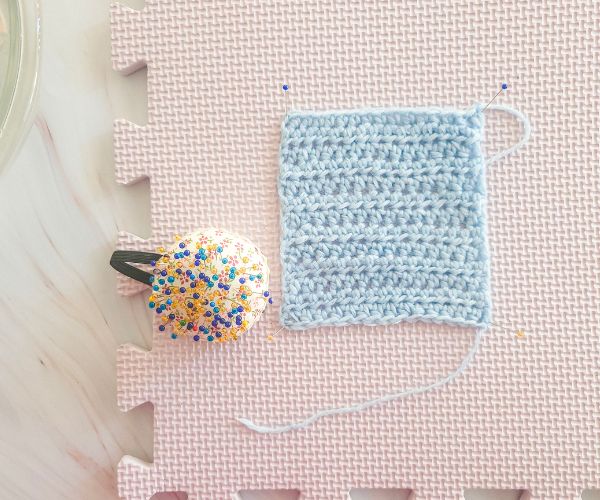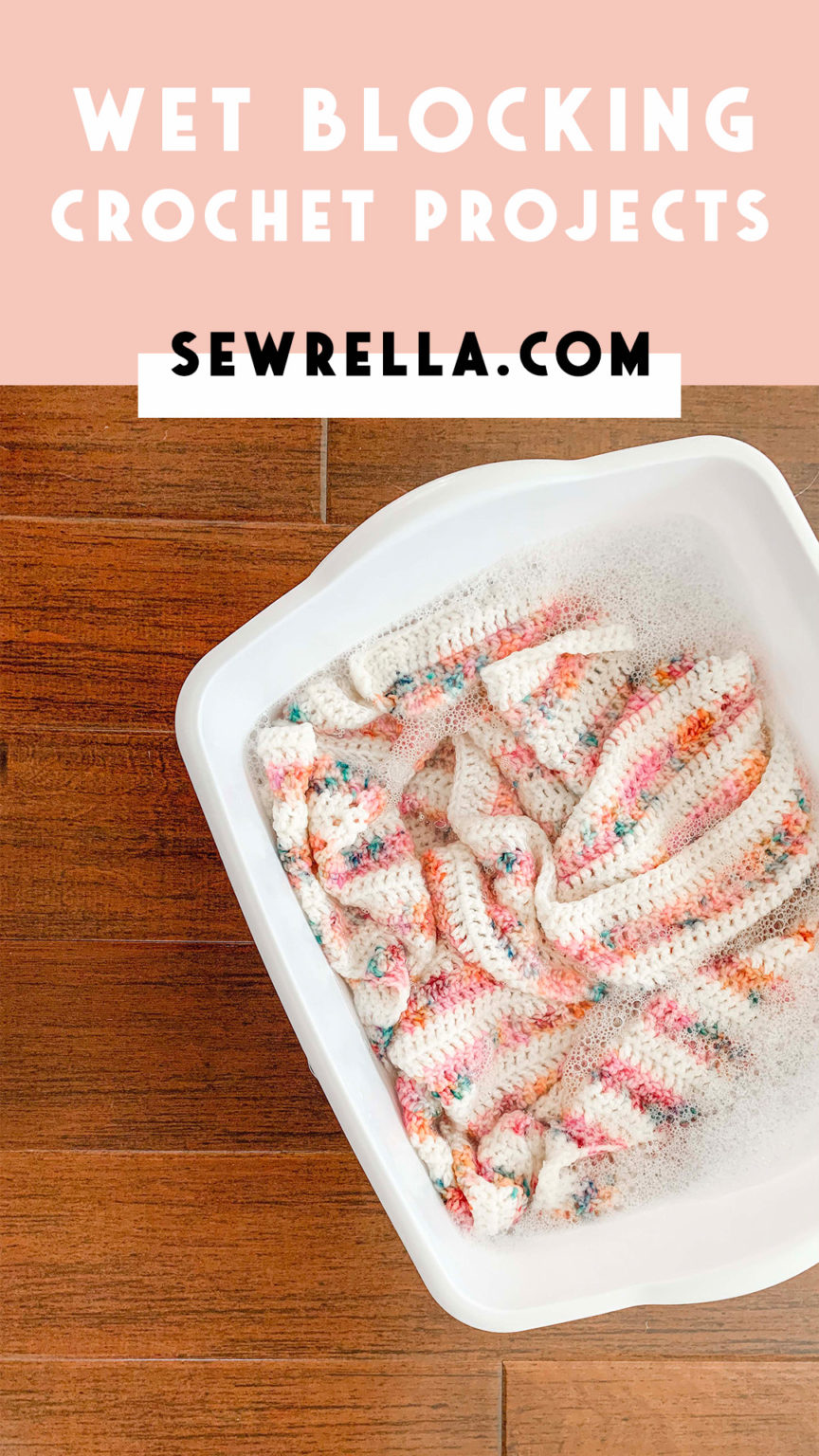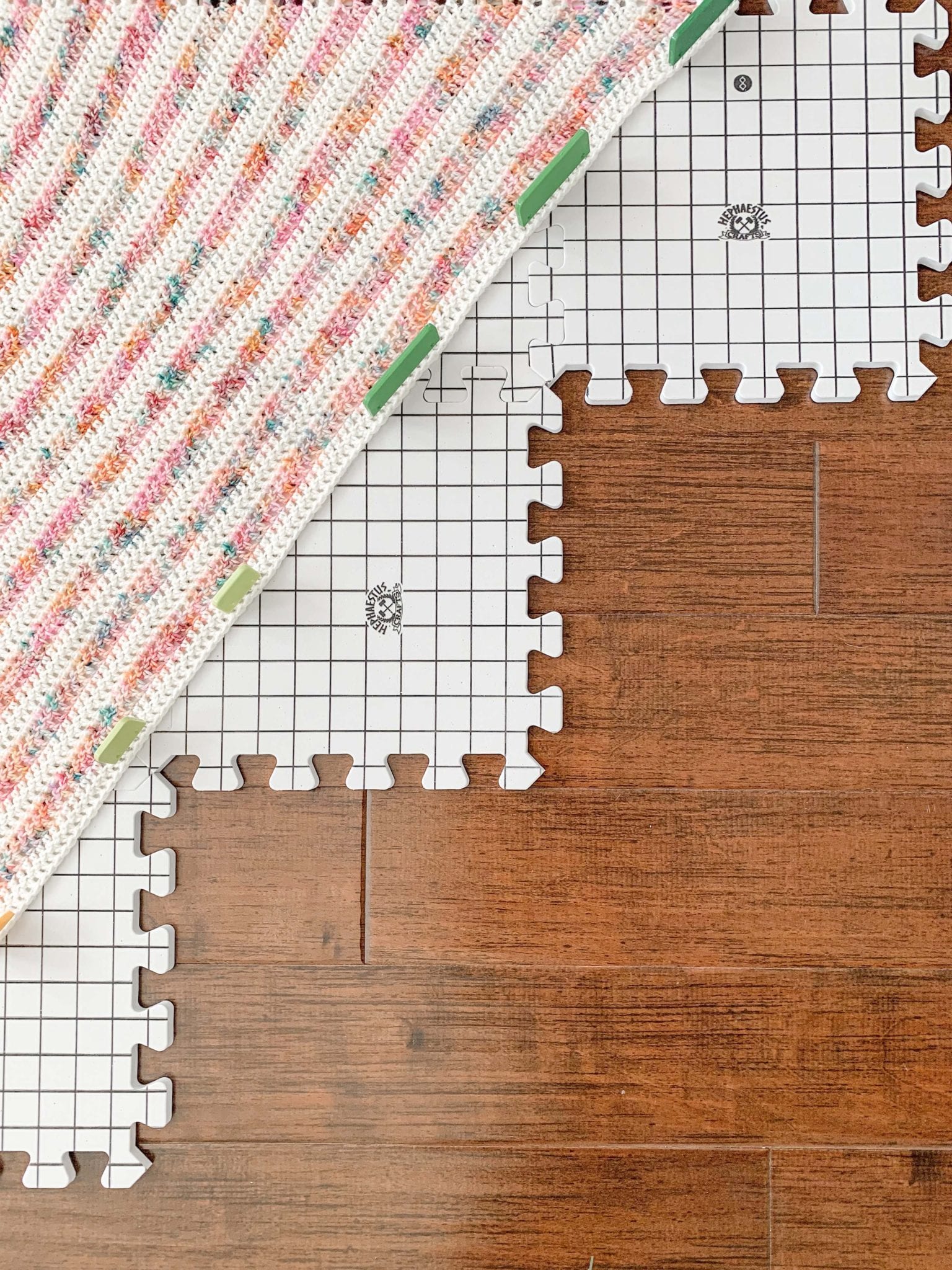Wet Blocking Crochet
Wet Blocking Crochet - In this tutorial i demonstrate on a hat, but the process it same to wet block a shawl or sweater or blanket square. What projects need to be wet blocked. Web wet blocking will result in crisp edges and a firm shape. Use a spray bottle to saturate your project with lukewarm water. This is achieved by applying moisture. Mist blocking is similar to steam blocking, but takes longer to dry. Lacework or open stitch patterns that you want to block aggressively. Web this easy step by step tutorial shows how to wet block crochet. I don’t believe it’s essential to block every piece of crochet. Web if you’re wondering why to block your crochet or how to block crochet, this article is for you! Use a spray bottle to saturate your project with lukewarm water. Web blocking is the introduction of moisture to a crochet or knit project to set or shape the final project. Lacework or open stitch patterns that you want to block aggressively. What projects need to be wet blocked. Crochet projects that benefit from blocking. The tools needed for wet blocking. Wet blocking is the most popular technique when it comes to blocking baby blankets, afghans, granny squares, and other motifs. There are two ways you can block your items: In short, blocking is getting your project wet and letting it dry! Web if you’re wondering why to block your crochet or how to block crochet, this article is for you! The tools needed for wet blocking. Read on to learn all there is about wet blocking, spray blocking, and steam blocking, and answers to the most frequently asked blocking questions. Web wet blocking is the process of soaking a crocheted piece in water, gently squeezing out the excess moisture, shaping it, and allowing it to air dry. In short, blocking. Use a spray bottle to saturate your project with lukewarm water. Lacework or open stitch patterns that you want to block aggressively. Wet blocking is the most popular technique when it comes to blocking baby blankets, afghans, granny squares, and other motifs. Crochet projects that benefit from blocking. Read on to learn all there is about wet blocking, spray blocking,. There are two ways you can block your items: Mist blocking is similar to steam blocking, but takes longer to dry. Wet blocking is the most popular technique when it comes to blocking baby blankets, afghans, granny squares, and other motifs. Using one of three methods, whether through soaking, misting, or steaming the crochet piece. I don’t believe it’s essential. Using one of three methods, whether through soaking, misting, or steaming the crochet piece. Use a spray bottle to saturate your project with lukewarm water. In short, blocking is getting your project wet and letting it dry! Read on to learn all there is about wet blocking, spray blocking, and steam blocking, and answers to the most frequently asked blocking. The tools needed for wet blocking. This is achieved by applying moisture. Read on to learn all there is about wet blocking, spray blocking, and steam blocking, and answers to the most frequently asked blocking questions. Web this easy step by step tutorial shows how to wet block crochet. Web blocking crochet fabric involves manipulating your finished project into a. Web wet blocking is the process of soaking a crocheted piece in water, gently squeezing out the excess moisture, shaping it, and allowing it to air dry. Web if you’re wondering why to block your crochet or how to block crochet, this article is for you! Mist blocking is similar to steam blocking, but takes longer to dry. This is. In short, blocking is getting your project wet and letting it dry! There are two ways you can block your items: Web this easy step by step tutorial shows how to wet block crochet. Natural fiber yarns such as wool, cotton, and linen. Mist blocking is similar to steam blocking, but takes longer to dry. Mist blocking is similar to steam blocking, but takes longer to dry. What projects need to be wet blocked. Web wet blocking will result in crisp edges and a firm shape. This is achieved by applying moisture. Web wet blocking is the process of soaking a crocheted piece in water, gently squeezing out the excess moisture, shaping it, and allowing. Read on to learn all there is about wet blocking, spray blocking, and steam blocking, and answers to the most frequently asked blocking questions. Web if you’re wondering why to block your crochet or how to block crochet, this article is for you! Use a spray bottle to saturate your project with lukewarm water. What projects need to be wet. In this article, you will learn: Lacework or open stitch patterns that you want to block aggressively. Using one of three methods, whether through soaking, misting, or steaming the crochet piece. Web blocking crochet fabric involves manipulating your finished project into a specific shape while it dries. What projects need to be wet blocked. I don’t believe it’s essential to block every piece of crochet. Natural fiber yarns such as wool, cotton, and linen. Lacework or open stitch patterns that you want to block aggressively. In short, blocking is getting your project wet and letting it dry! There are two ways you can block your items: Web in this blog post, i’ll cover 3 ways you can block your crochet: There are a few techniques for accomplishing this, including mist blocking, wet blocking, and steam blocking (outlined below). Web wet blocking will result in crisp edges and a firm shape. Web if you’re wondering why to block your crochet or how to block crochet, this article is for you! Web wet blocking is the process of soaking a crocheted piece in water, gently squeezing out the excess moisture, shaping it, and allowing it to air dry. Web blocking crochet fabric involves manipulating your finished project into a specific shape while it dries. This is achieved by applying moisture. The tools needed for wet blocking. Mist blocking is similar to steam blocking, but takes longer to dry. Web learn when blocking in crochet is necessary, what tools you need, and how to block crochet with wet blocking, spray blocking, steam blocking, and dry blocking. Web blocking is the introduction of moisture to a crochet or knit project to set or shape the final project.How To Block Crochet Wet & Steam Blocking Instructions Crafting
How to Wet Block in Crochet An InDepth Guide CrochetKim™
Wet Block Crochet Afghan Squares Tutorial • Free Crochet Tutorials and
How to Wet Block in Crochet An InDepth Guide CrochetKim™
How to Wet Block in Crochet An InDepth Guide CrochetKim™
How to wet block your crochet DIY & Tutorial Happy in Red
WET BLOCKING 101 HOW TO WET BLOCK A SHAWL [Step By Step Guide to Block
How to Block Crochet (3 Easy Methods) Maisie and Ruth
Wet blocking crochet projects free howto video tutorial
Wet blocking crochet projects free howto video tutorial
In This Tutorial I Demonstrate On A Hat, But The Process It Same To Wet Block A Shawl Or Sweater Or Blanket Square.
What Projects Need To Be Wet Blocked.
This Method Works Well For:
Use A Spray Bottle To Saturate Your Project With Lukewarm Water.
Related Post:









